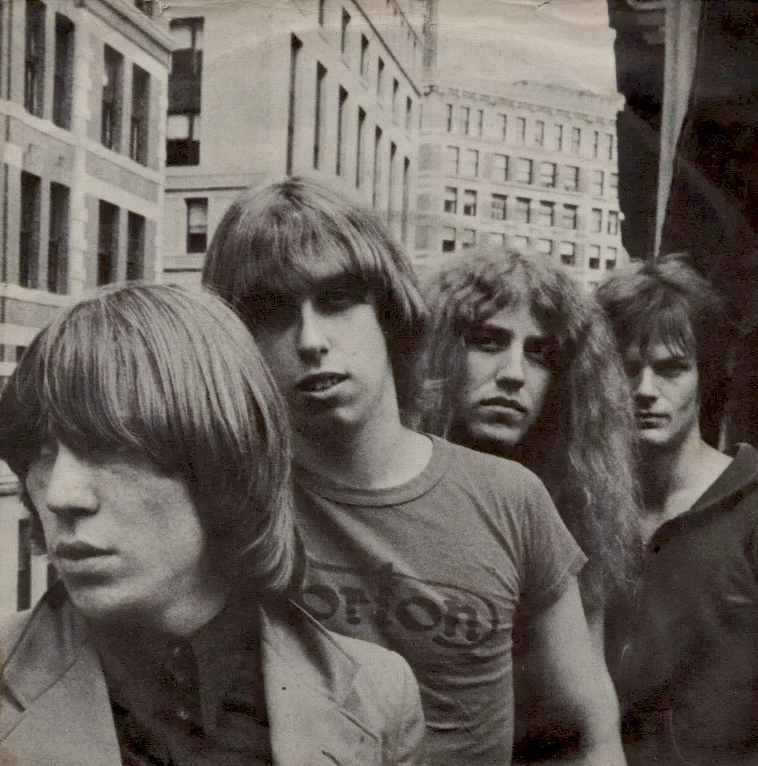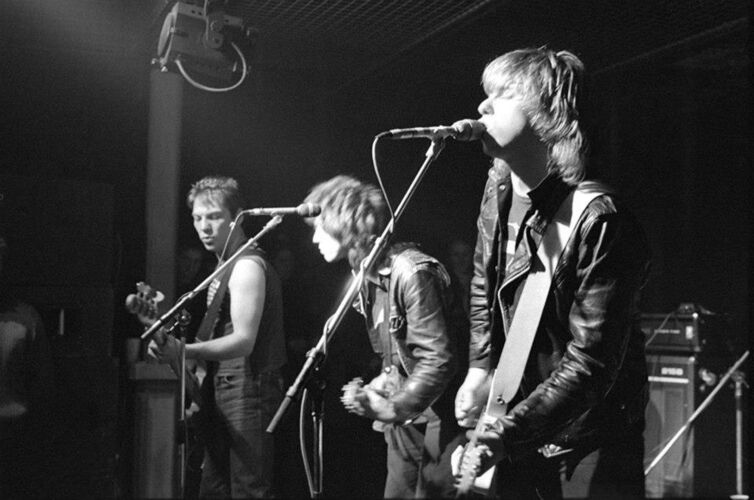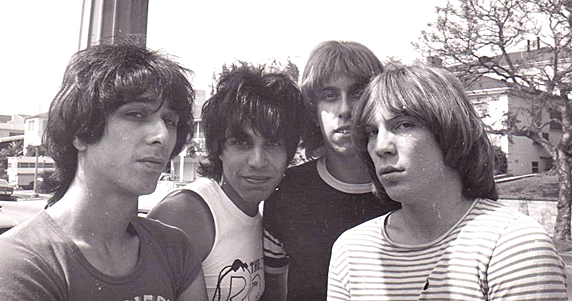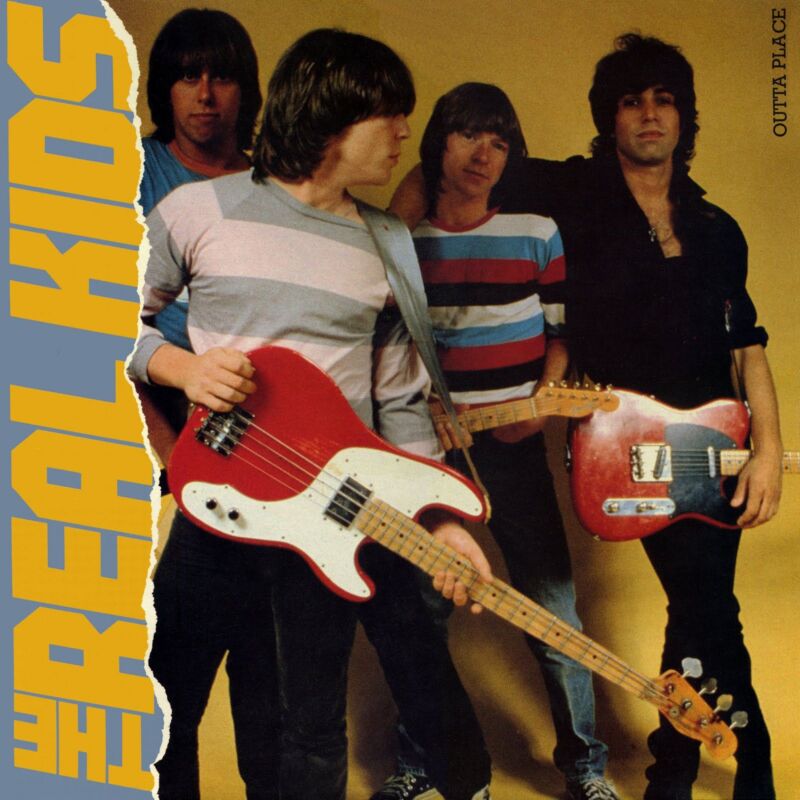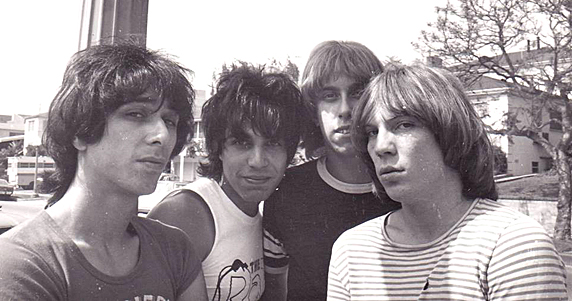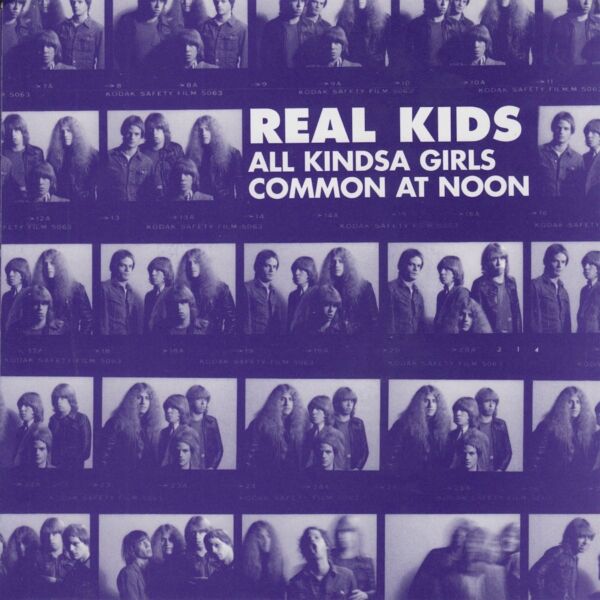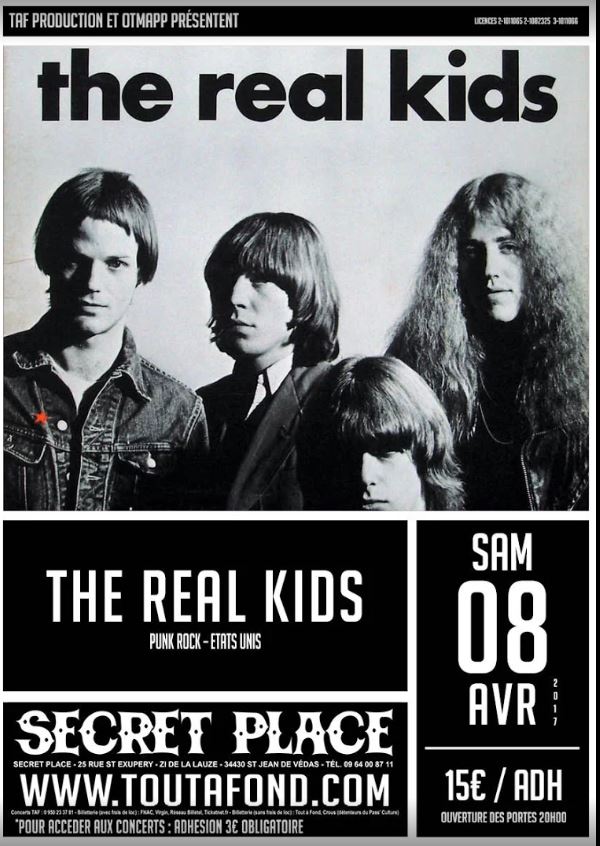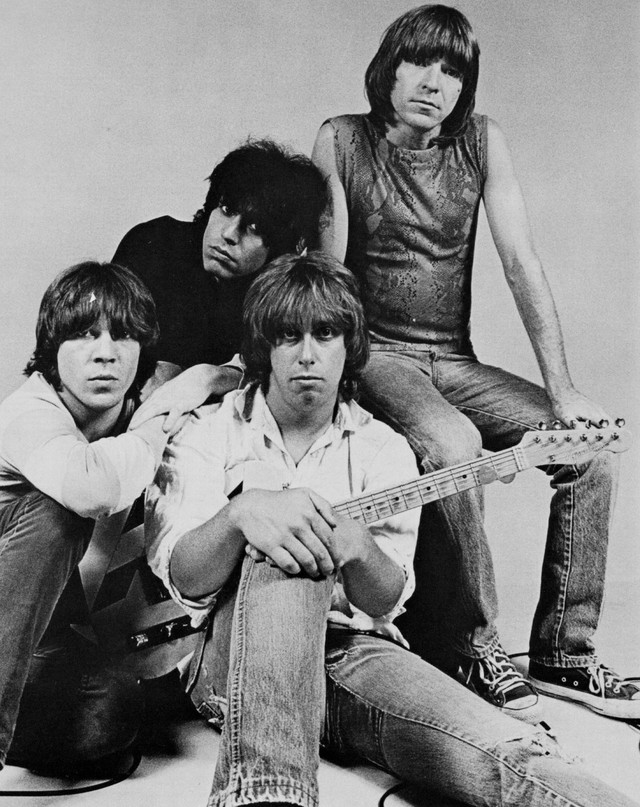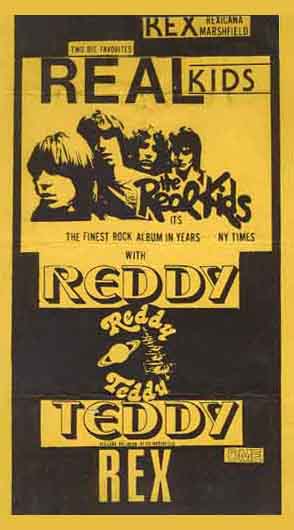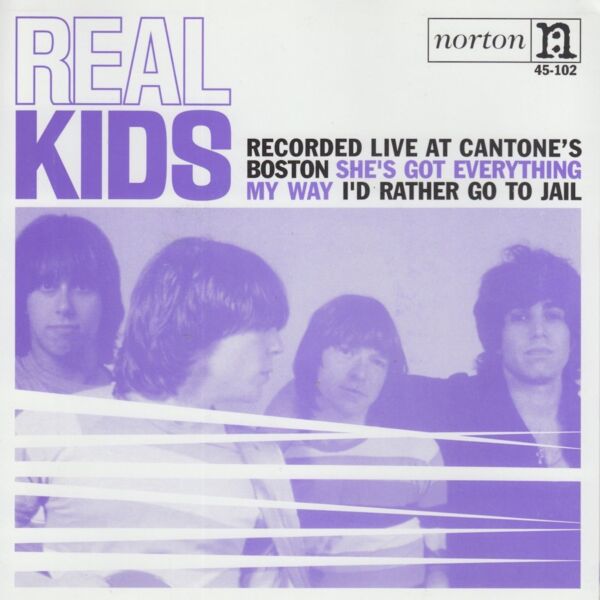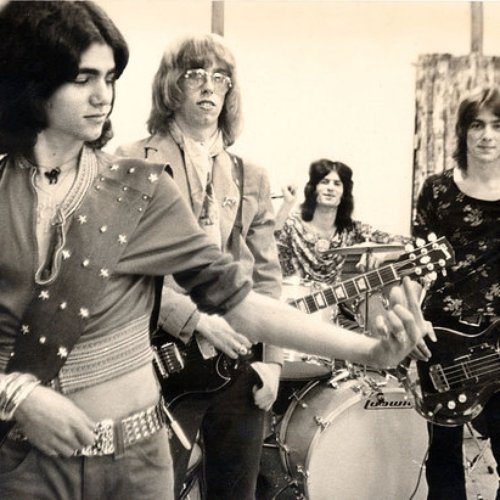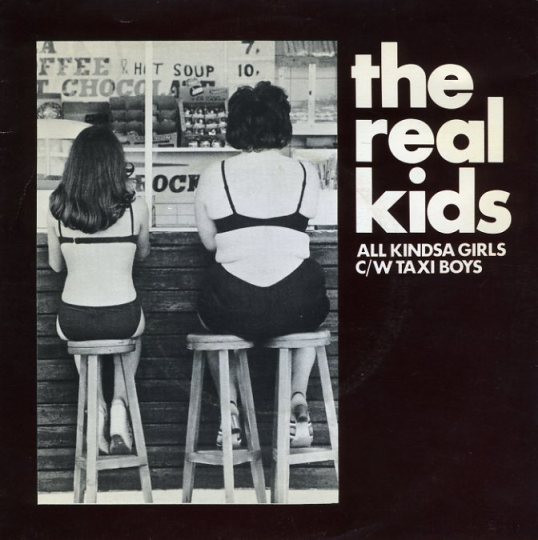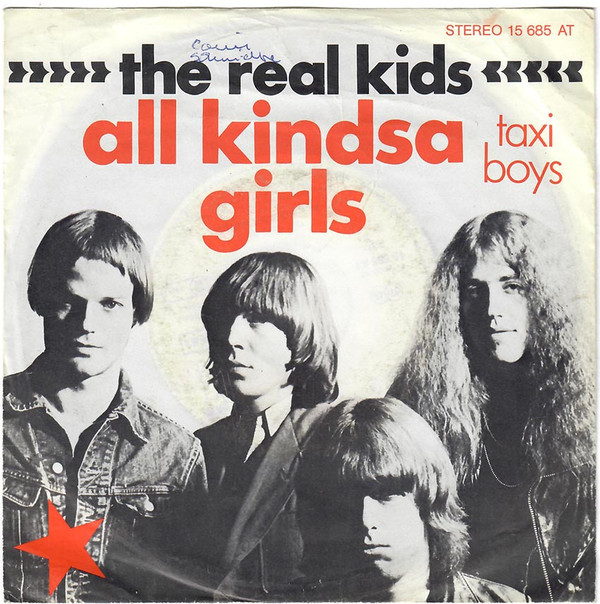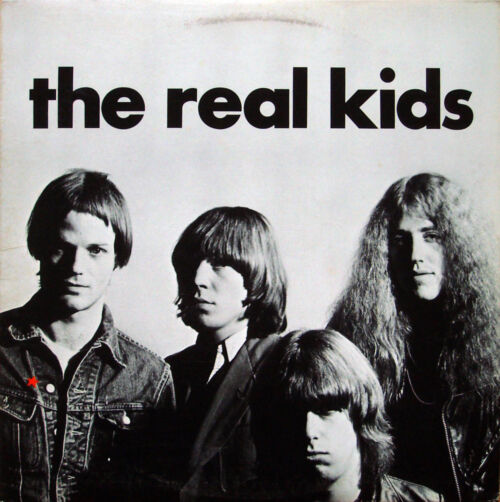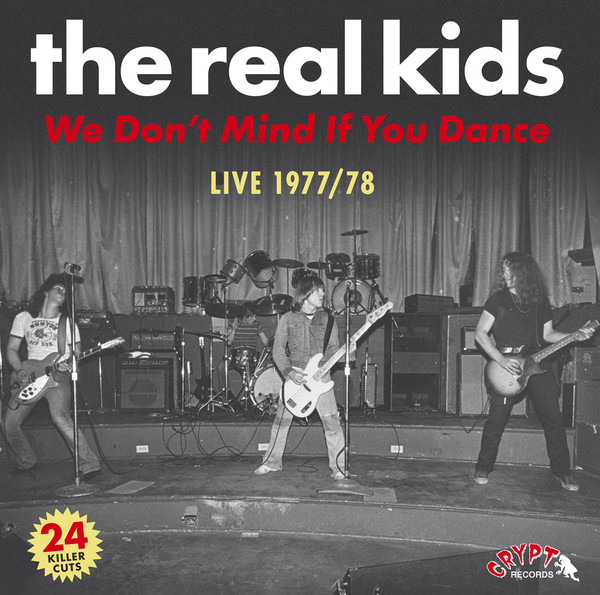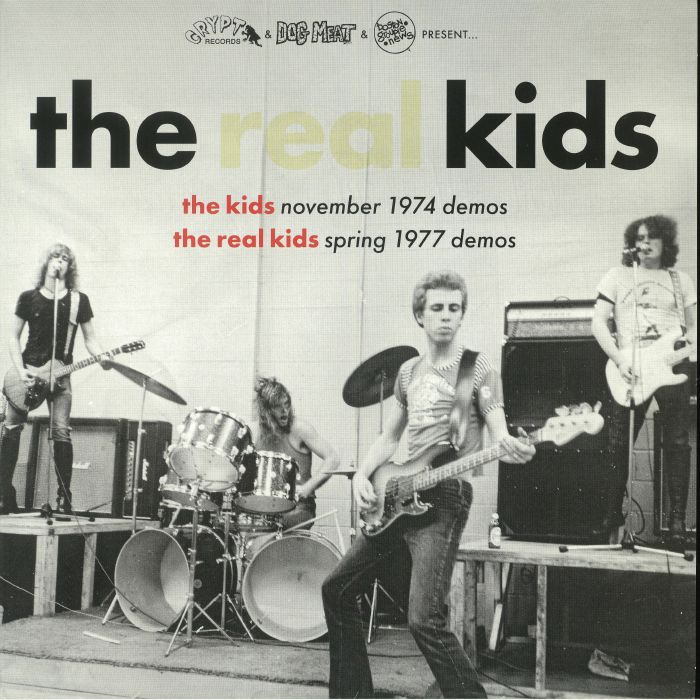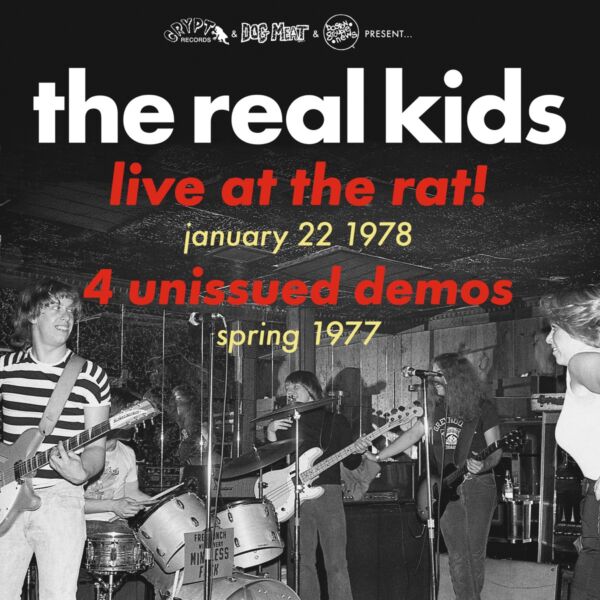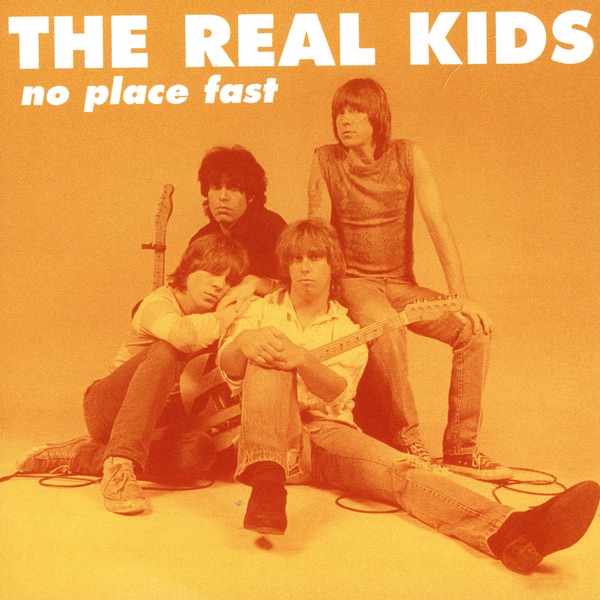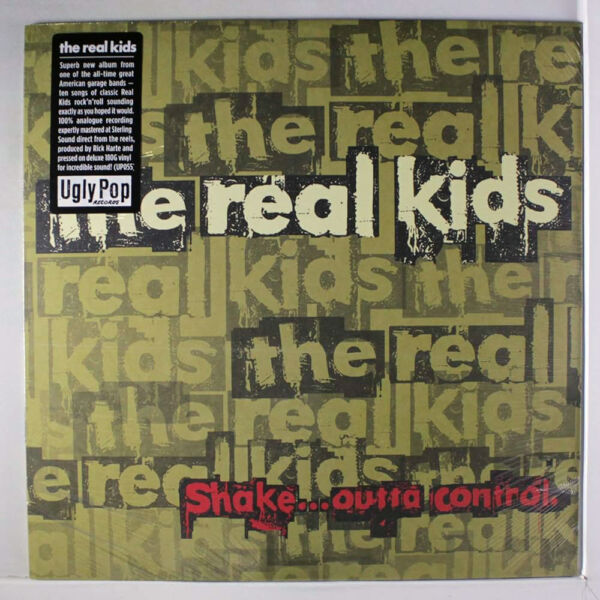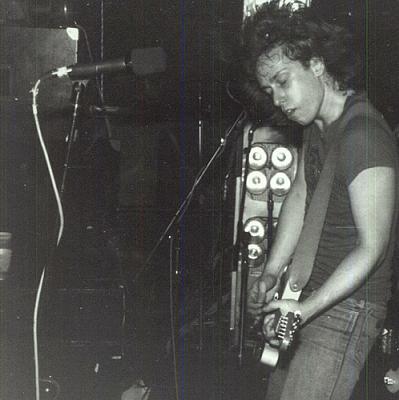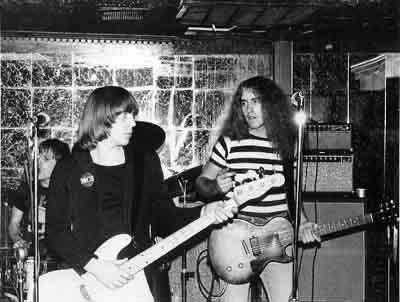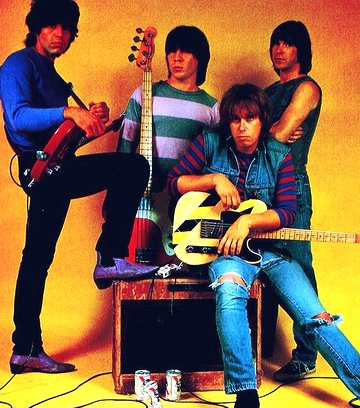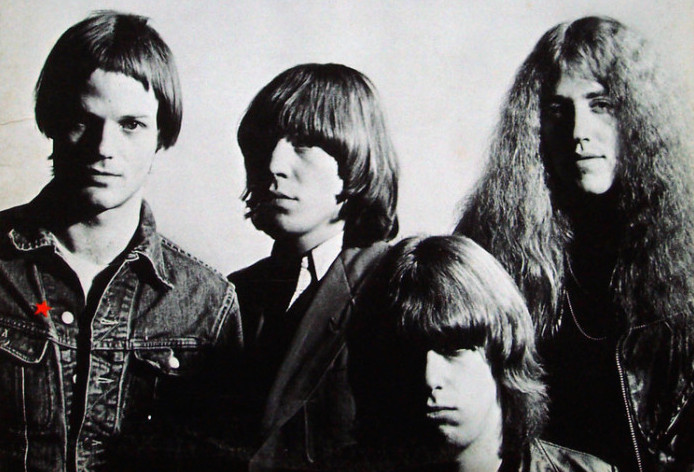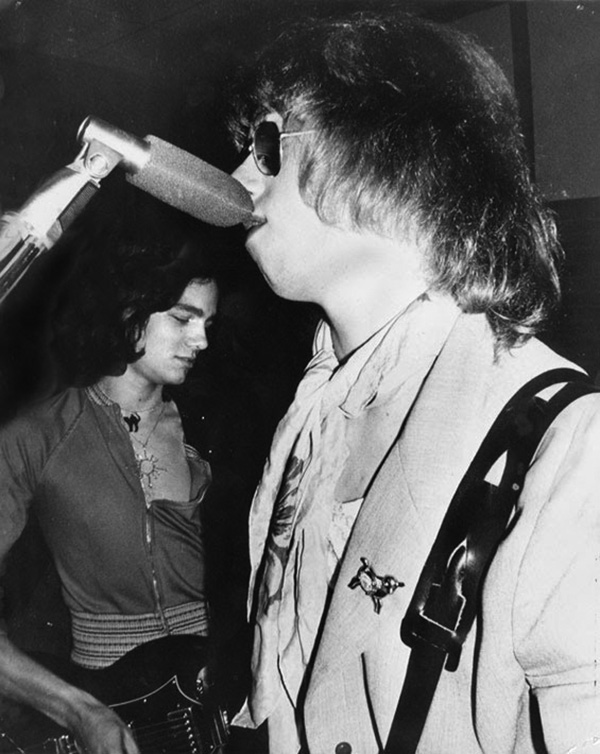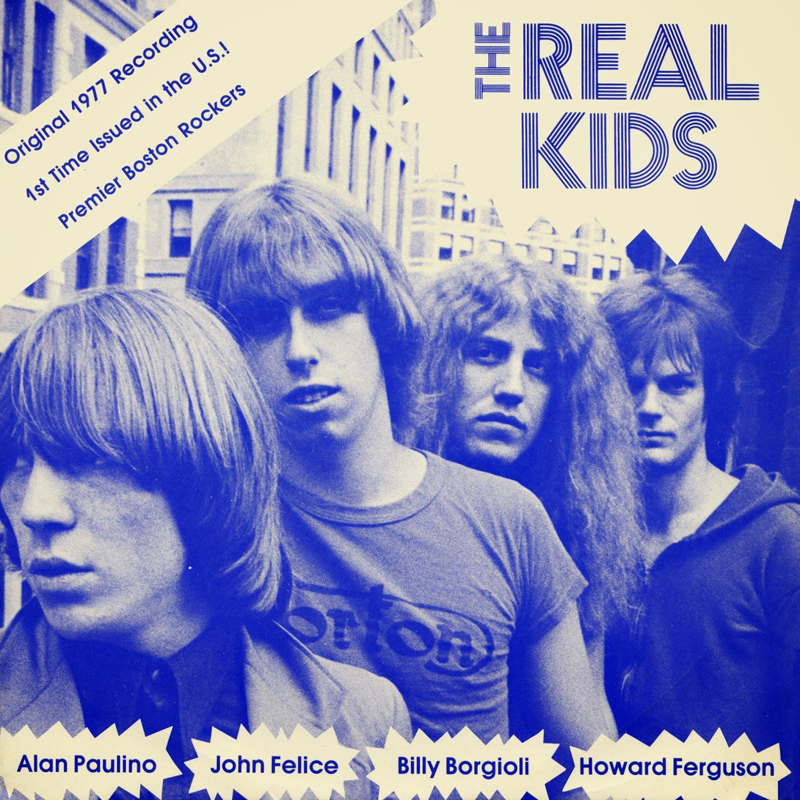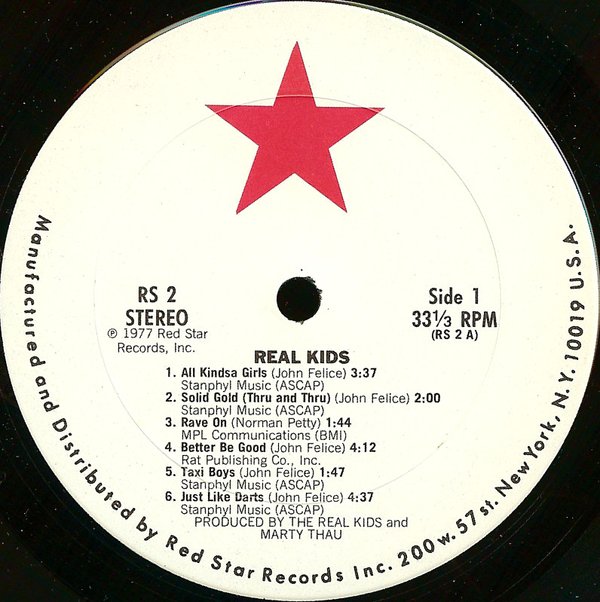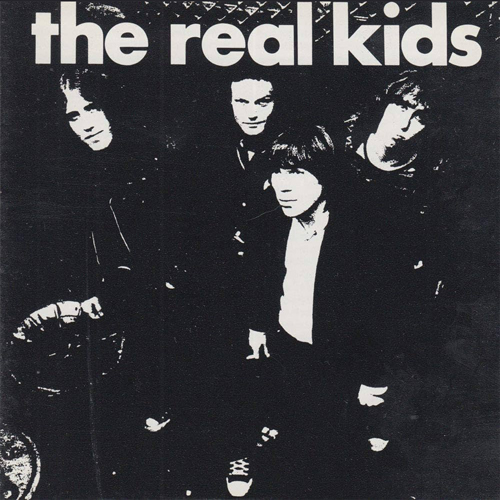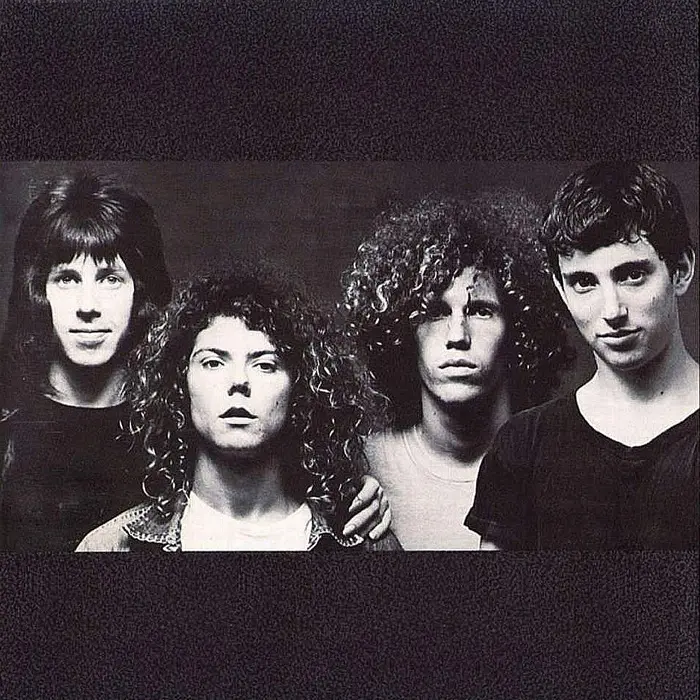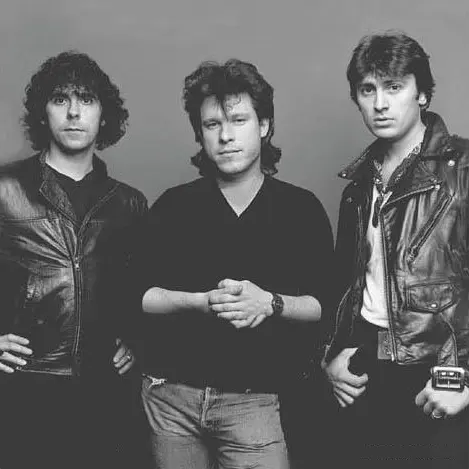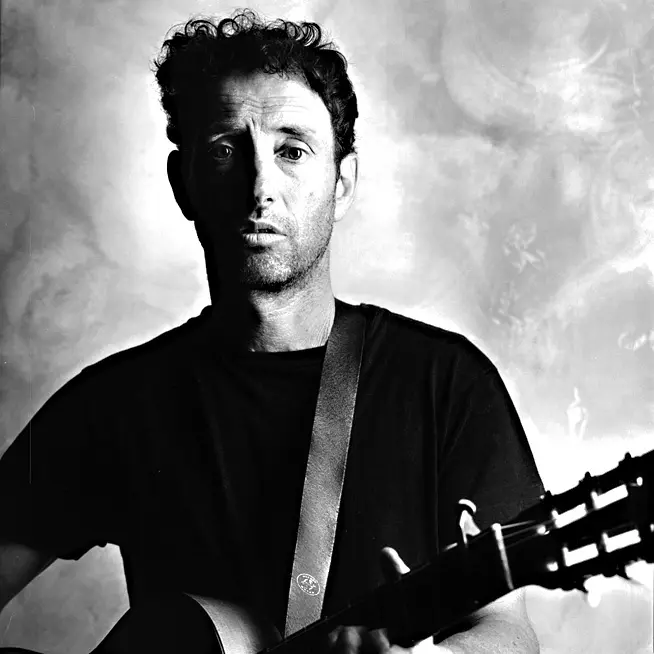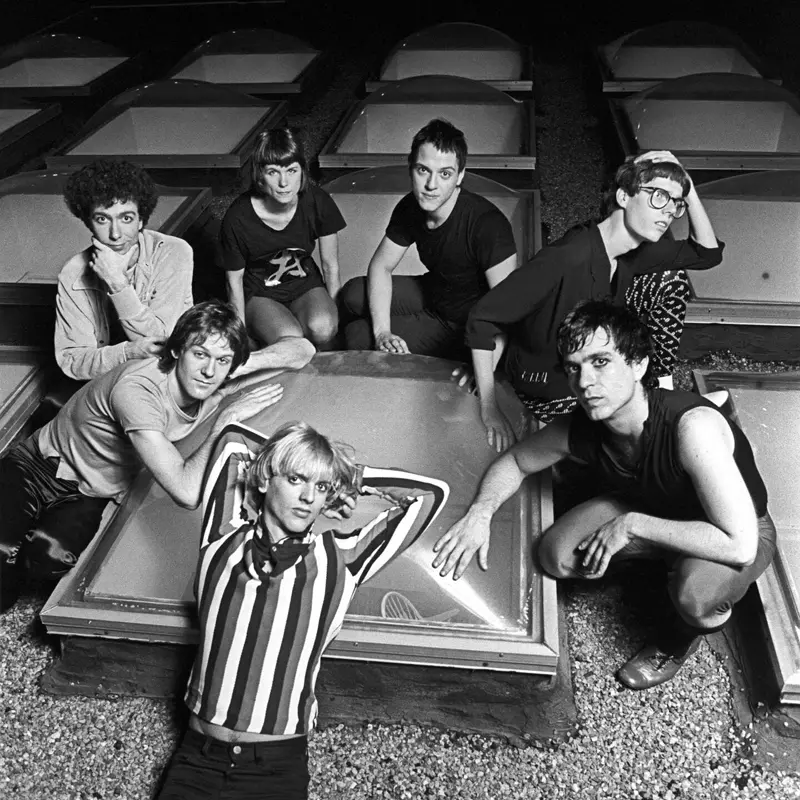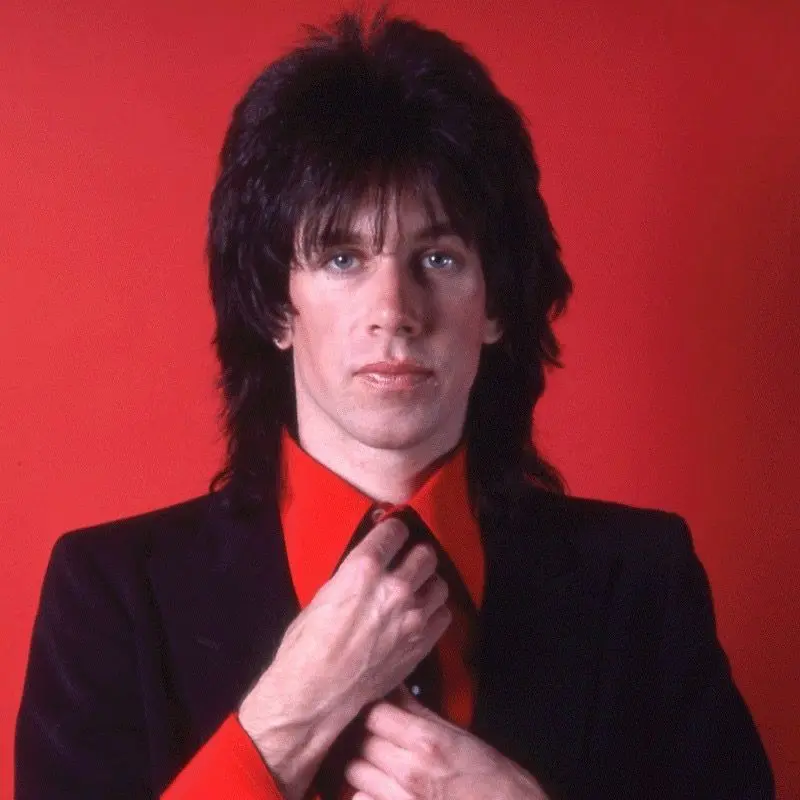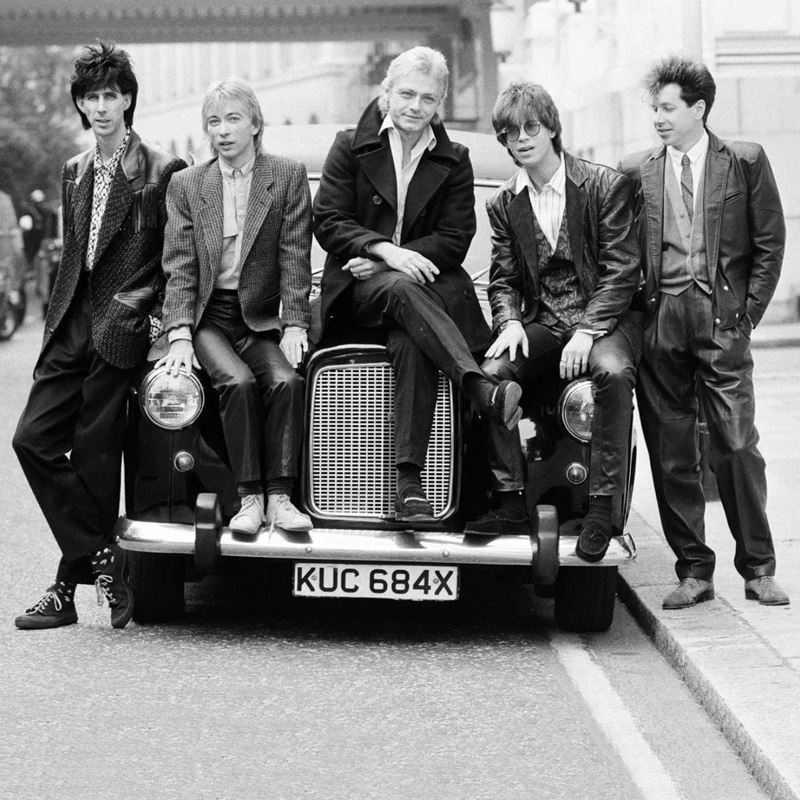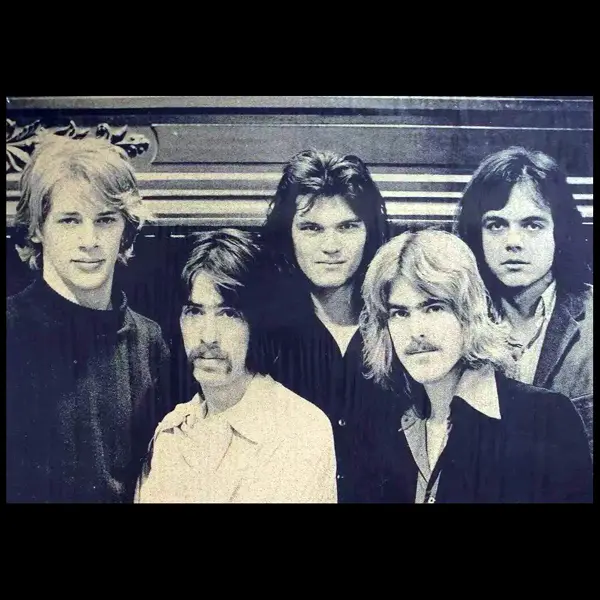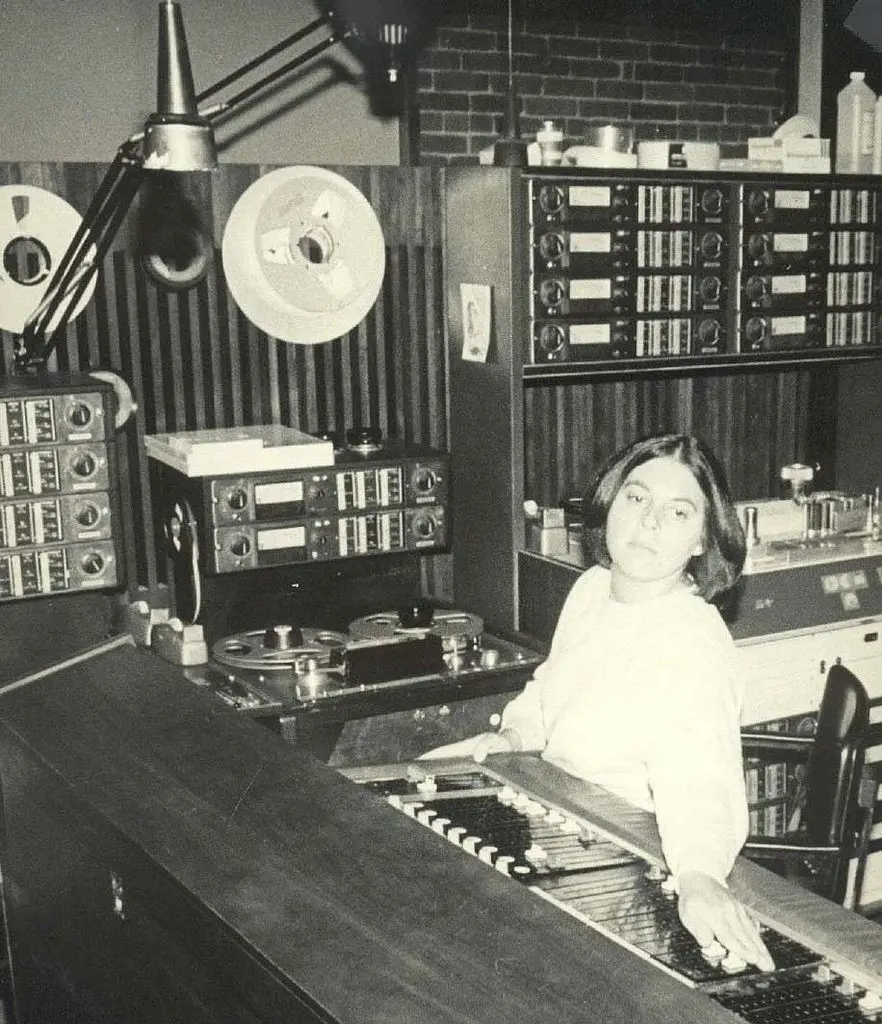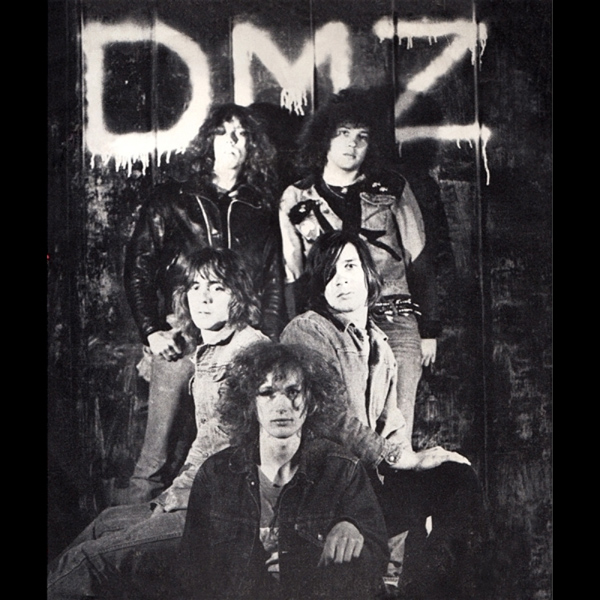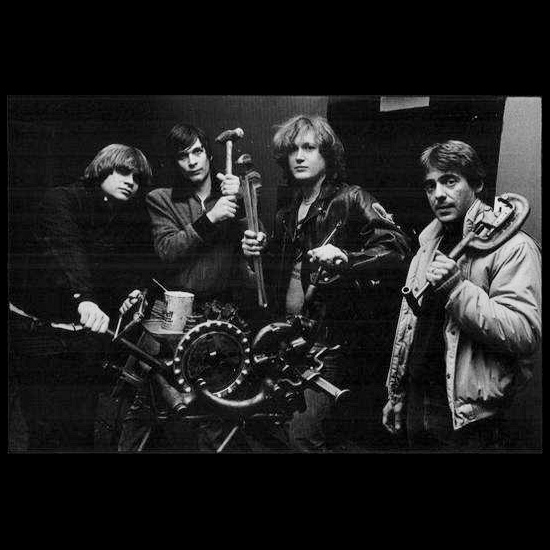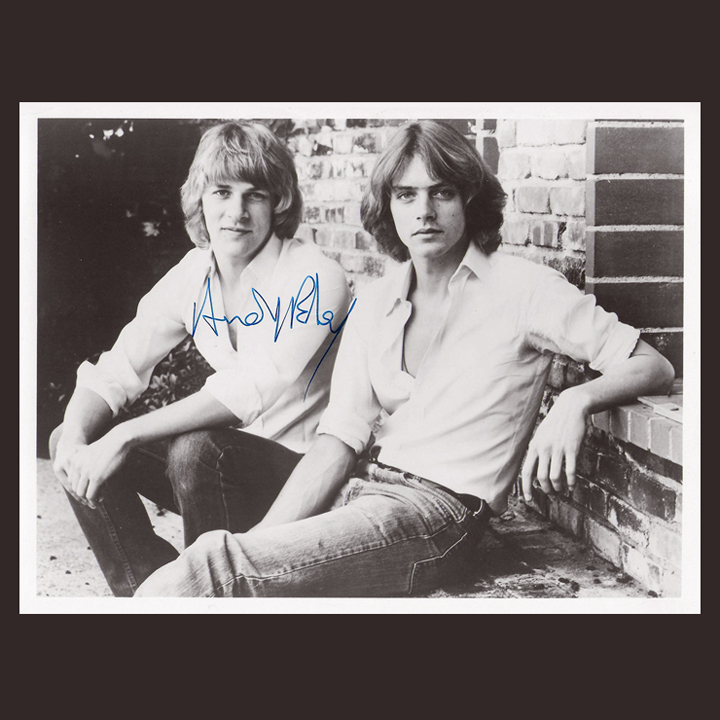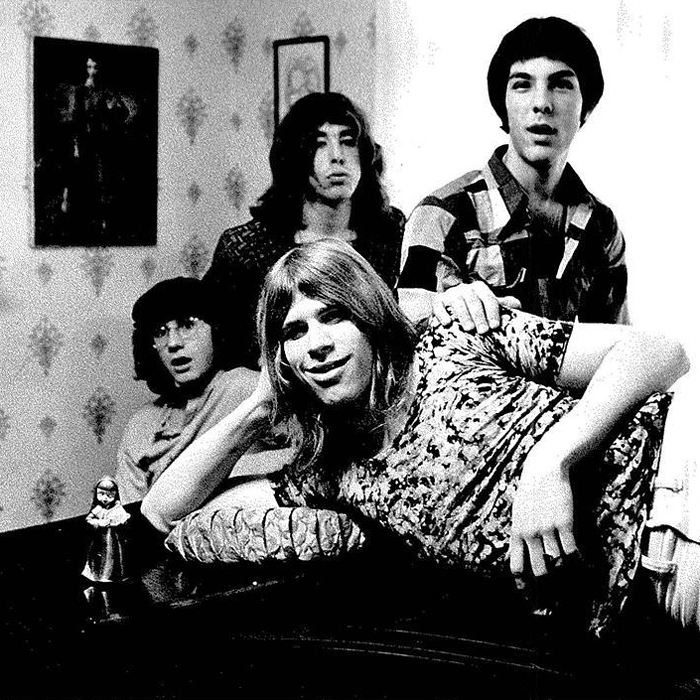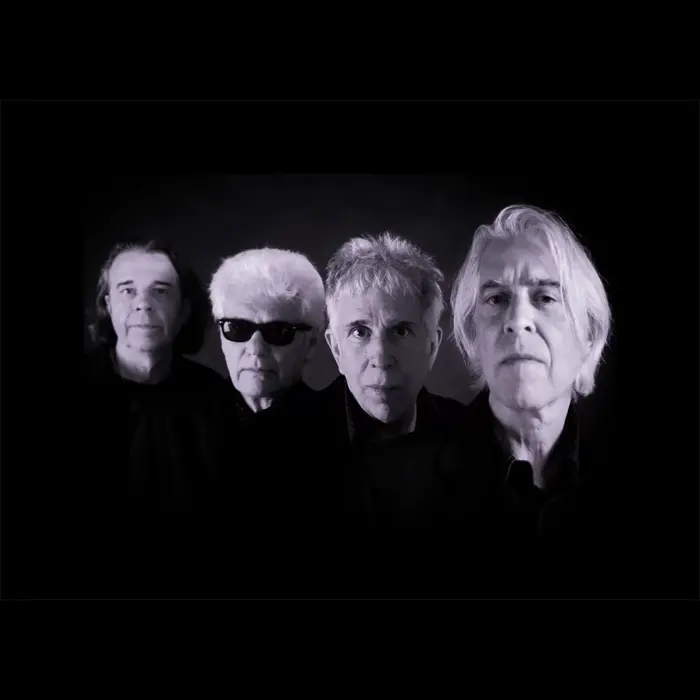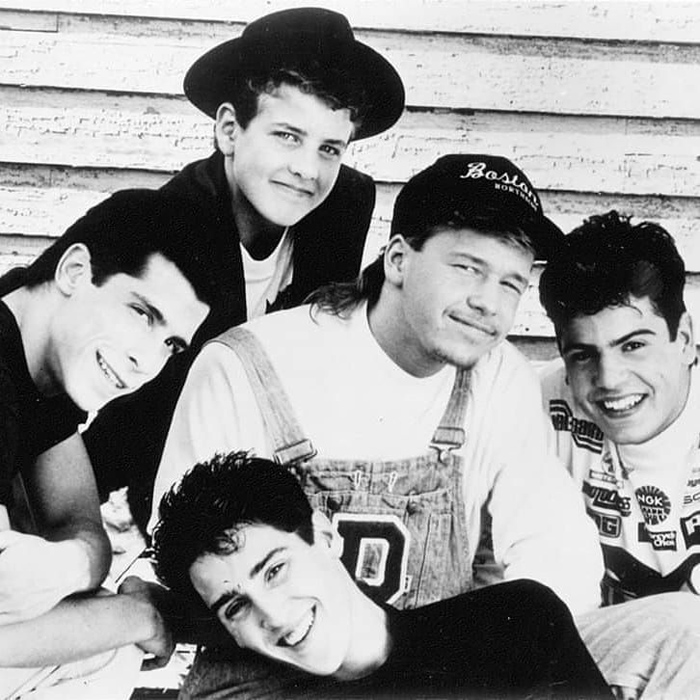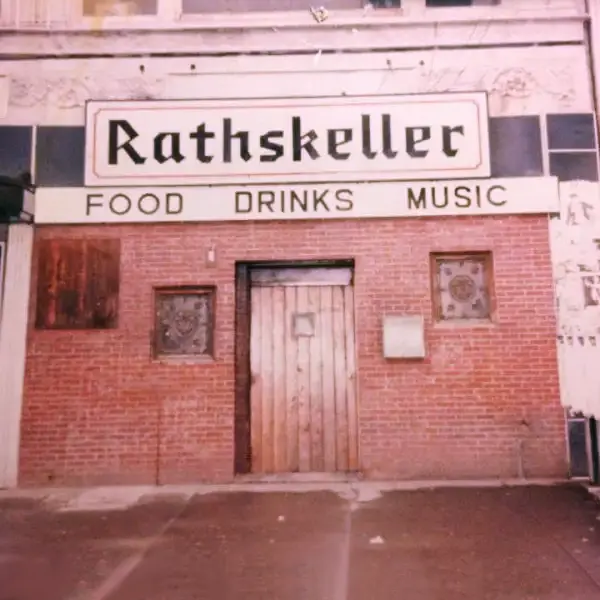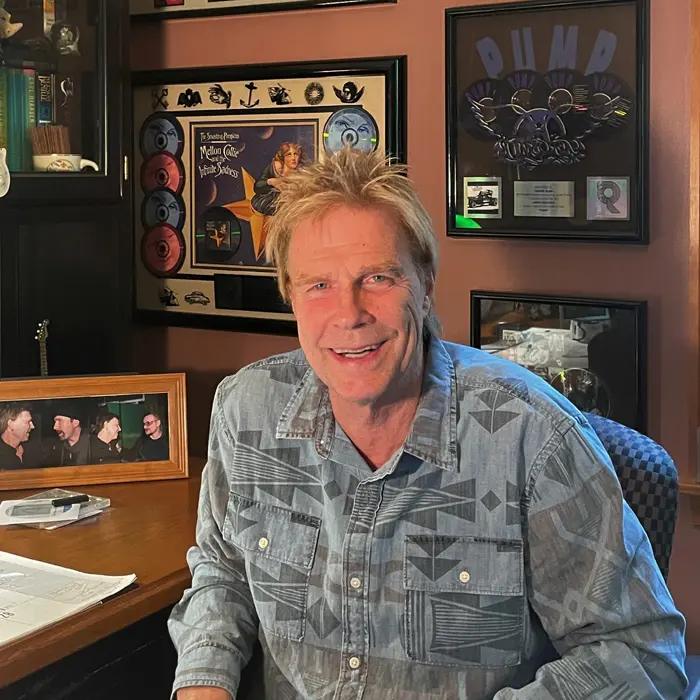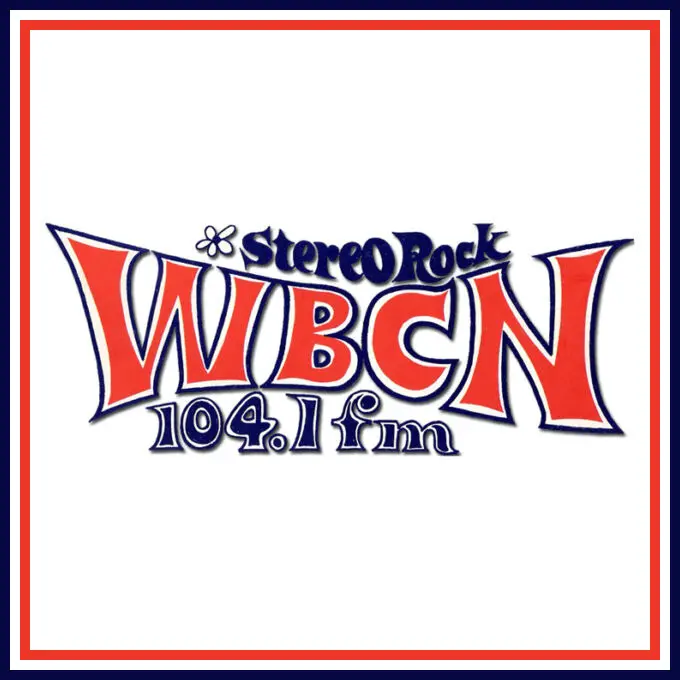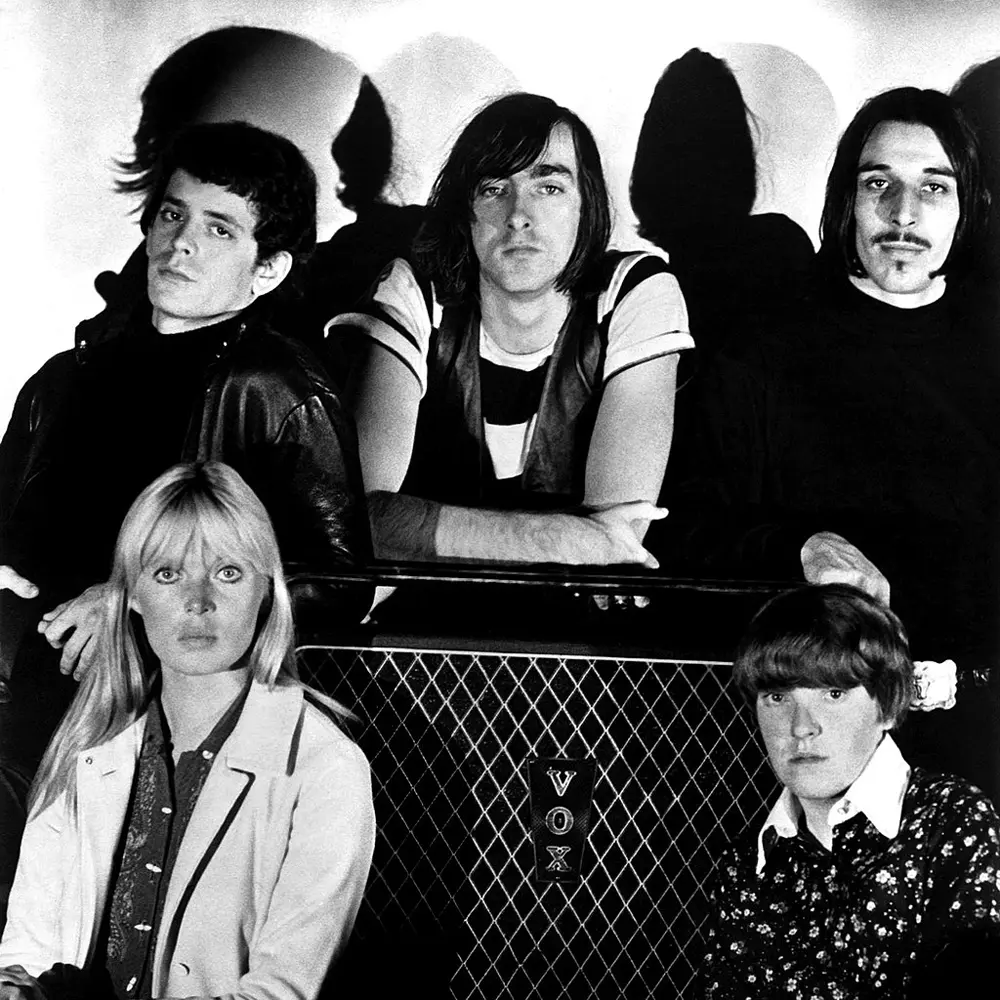John Felice & The Real Kids
Formed when three of the five New Kids on the Block were in first grade, one was in kindergarten and the other was a preschooler, The Real Kids were the antithesis of that clean-cut quintet in every way, from their aggressive attitude and angsty aura to their rocked-out, liquored-up live shows. And their albums sold in the tens of thousands tops, a drop in the proverbial bucket compared to New Kids’ multimillions.
But despite that lack of mass-market success, The Real Kids are as indelibly etched into the cement of Boston’s musical history as any non-charting rock group has ever been. Since recording their debut LP in 1977, the band has attained a level of respect that Billboard rankings, Grammy Awards and other mainstream affirmations of popularity simply cannot provide.
OVERVIEW
From the mid-‘70s through the early ‘80s, The Real Kids were an institution on the Boston scene, the epitome of no-holds-barred rock ‘n’ roll and what critic Cub Koda has called the city’s “original rock ‘n’ roll slop band.” Equally adept at ripping through frontman John Felice’s originals and covers of classics – Eddie Cochran, Buddy Holly and Chuck Berry tunes being among the most common – the group built a rabid following across the US and Europe with riveting live sets and an unapologetically party-on ethos.
Through numerous lineups, break ups and years-long gaps between albums, the band has recorded just four official LPs, though multiple compilations have been released, and their debut disc is widely considered to be a garage-rock masterpiece. Journalists and critics have lumped The Real Kids in with The Sex Pistols as pioneers of punk for decades, but Felice has consistently insisted that they don’t belong in that category despite their regular appearances at punk meccas like the Rathskeller in Boston and CBGB in New York City.
“It was rock ‘n’ roll, not punk,” he told Boston Groupie News (BGN) in 2014. “It wasn’t based on posing, stickin’ safety pins in your nose, spittin’ and shit like that. It was about rock ‘n’ roll and dancing. Yeah, we had ‘punk’ elements. We had the attitude. But we were not a punk band.”
FELICE’S ROOTS, THE MODERN LOVERS
Felice was born December 27, 1955, got his first guitar at age 12 and picked up the basics from a guitarist friend in Natick, Massachusetts, where he was raised. “We jammed together [playing] heavy pop and stuff,” he told BGN. “But it wasn’t instruction, it was ‘You do that and I’ll do this’ and we kept going back and forth until we had something. Basically I just taught myself.”
In mid-1970, at age 14, he began his musical career as a part of The Modern Lovers’ original lineup: Jonathan Richman – a Natick native four and a half years his senior who grew up in the house next door to Felice’s – bassist Rolfe Anderson (later of Human Sexual Response) and drummer David Robinson (later of The Cars). “Finally, Jonathan caved in to my nearly constant pleading that he consider starting a band with me,” Felice said in a 2014 interview with The I-94 Bar, a music magazine in Australia (where The Real Kids have a sizable following). “I loved his songs and thought they’d be even better with a real, live rock ‘n’ roll band backing them up.”
Felice appeared with the Lovers at their first-ever gig in September 1970 – opening for Catfish Black (later The Sidewinders) at the Cambridge YMCA – but he left the group before they recorded the tracks that appeared on their debut album (at Intermedia Sound Studios in Boston in September 1971 and in Los Angeles in April 1972). He’s said he saw no future with the Lovers since he and Richman were very different people with very different musical visions. “As close as we were, I was a wise-ass kid, a hellion. I liked to do a lot of drugs and to I liked to drink, and Jonathan was wide-eyed, no-drugs, ate nothing but health food,” he said in 1998. “I had a 100-watt Marshall. Jonathan was always trying to turn down.”
Felice told BGN that he’s the actual “Hippie Johnny” from Richman’s song “I’m Straight” – “I’m certainly not stoned, like Hippie Johnny is,” Richman sings on the Lovers’ debut album – and that his earliest influences are The Kinks, The Rolling Stones, The Stooges, The Troggs, The Pink Fairies, AC/DC, David Bowie, Eddie Cochran, Buddy Holly, Chuck Berry and Carl Perkins.
THE CHILDREN’S ROCK ‘N’ ROLL BAND, THE KIDS, THE HEARTBREAKERS
In 1971, while with the Lovers, Felice formed a short-lived group called The Children’s Rock ‘n’ Roll Band with drummer Paul Murphy (later of DMZ and Lyres) and started writing songs of his own. In early 1972, he formed The Kids with guitarist Curt Naihersy, bassist Jeff Jensen and drummer Kevin Glasheen. The group played Felice’s originals and oldies covers for the next few years in and around Boston without landing a record deal.
In early 1975, Felice auditioned in New York City for The New York Dolls’ Johnny Thunder and Jerry Nolan’s new band, The Heartbreakers, but he turned down the gig. “I had it if I wanted it, but what I witnessed down there scared me,” he told BGN. “I knew that I’d be dead within months, so I reluctantly packed up my guitar and headed home to Boston.”
THE REAL KIDS
Upon his return, he formed The Real Kids with the original lineup of guitarist Steve Davidson, bassist Rick Coraccio and drummer Norman Bloom. By 1977, what many consider the “classic” quartet was in place: Felice, guitarist Billy Borgioli, bassist Allen “Alpo” Paulino and drummer Howie Ferguson. The band gigged regularly at The Rathskeller and Cantone’s in Boston and CBGB while Felice’s originals “All Kindsa Girls,” “Common at Noon,” “My Baby’s Book” and “Just Like Darts” saw significant play on college and progressive commercial stations across the Northeast.
DEBUT ALBUM, RAMONES ROADIE, THE TAXI BOYS
In 1977, The Real Kids recorded their eponymous debut album, produced by New York Dolls manager Marty Thau and released on the label he founded, Red Star Records. It was reissued in 1991 by Norton Records, which acquired the masters to all of the Red Star recordings and subsequently released four more discs of the band’s early material: Grown Up Wrong (1993), No Place Fast (1999), Better Be Good (1999) and Senseless: Live at Cantone’s 1982 (2001).
Critics hailed the debut as a genre-defining blend of very early Stones, The Velvet Underground, Buddy Holly and Eddie Cochran in terms of explosive energy and many noted the soul-baring honesty of Felice’s lyrics. Though it’s now considered a classic, the album was a commercial nonevent and almost immediately after its release The Real Kids took the first of many multi-year breaks.
During the hiatus, Felice worked as a roadie for The Ramones – “for many, an act akin to leaving the Red Sox and joining the Evil Empire [i.e., the New York Yankees]!,” wrote former WBCN deejay Carter Alan in 2013 – before forming The Taxi Boys with guitarist Scott Parmenter, bassist Billy Cole and drummer Bobby McNabb. The group cut an EP and a single for Star Rhythm Records in 1981; both sounded almost identical to The Real Kids’ material, critics said.
OUTTA PLACE, HIT YOU HARD, ALL KINDSA JERKS LIVE
In 1982, Felice reassembled The Real Kids to record their second LP, this time with Andy Paley producing and Bobby “Morocco” Morin on drums. Released by Red Star, the album maintained the basic sound of debut with a touch of studio gloss. In 1983, the band headed to France – where they had a much bigger audience than they did in the US – and recorded their third album, Hit You Hard, issued by the French label New Rose in Europe only. Also that year, New Rose released All Kindsa Jerks Live, and 11-track disc recorded during a European tour.
THE PRIMATIVE SOULS, THE LOWDOWNS, THE DEVOTIONS
Shortly after Hit You Hard hit the shelves, Borgioli and Paulino left to start The Primitive Souls and The Real Kids split again. Felice formed John Felice & The Lowdowns, recording the album Nothing Pretty for the Boston-based Ace of Hearts label in 1987. The Real Kids reunited several times in 1988 and 1989 to play one-off shows and in 1996 Felice formed The Devotions, cutting the EP Make It Go Away in 1999 (unreleased until 2010).
ALL KINDSA GIRLS, SHAKE…OUTTA CONTROL, COMPILATIONS
In 2006, director Cheryl Eagan-Donovan documented The Real Kids’ evolution in her film All Kindsa Girls, which features rare footage from the band’s earliest days through the late 1990s. In 2014, Felice put together a new Real Kids lineup – guitarist Cole, bassist Dickie Oakes (replacing Paulino, who died in 2006) and drummer Judd Williams – to record a fourth LP, Shake…Outta Control, on Ace of Hearts.
Produced by the label’s founder Rick Harte, the album had a rootsier vibe than all of its predecessors, with harmonica and mandolin added to Felice’s raunchy guitar twang on some of the 12 tracks. Among the covers on the LP are The Kinks’ “She’s Got Everything” and the Richman-penned “Fly Into the Mystery” (from the early Modern Lovers days). “If you like The Real Kids, you need to hear this record regardless what you think of reformations,” said a review in The I-94 Bar.
Though no new material from The Real Kids has been released since 2015, in 2018 Crypt Records released six compilations of early demos and live cuts – The Kids November 1974 Demos; The Real Kids 1977 Demos; Live at The Rat! January 22 1978; We Don’t Mind If You Dance; See You on the Street Tonight (1976 Rehearsals, Live 1976/77) – and the eight-song mini-album 28.18.39.
COMMENTS ON BOSTON SCENE, INSPIRATION
Asked in 2015 about the significance of the ‘70s Boston scene that spawned The Real Kids, Reddy Teddy, Classic Ruins, Nervous Eaters and Lyres, Felice said he’s proud to have been a part of it. “As far as Boston sitting someplace special historically, I leave that to guys who write articles and books,” he told The I-94 Bar. “I know what happened here was special – very special. And we played a big part in it. There are kids in our audience these days who weren’t even born when our first records were released. And they dig it.”
Asked what motivated him to form his own band in the first place, Felice said it was largely a reaction to what he saw as radio’s decline. “My inspiration was to get kids to rock,” he told BGN in 2014. “With all that crap that was on the radio, I mean, I was mad that rock ‘n’ roll was suffering. Radio used to be such a great thing – top 40, garage rock and stuff – then in the ’70s it just went down the fuckin’ tubes. That really pissed me off so I figured I had to do my part.”
(by D.S. Monahan)

